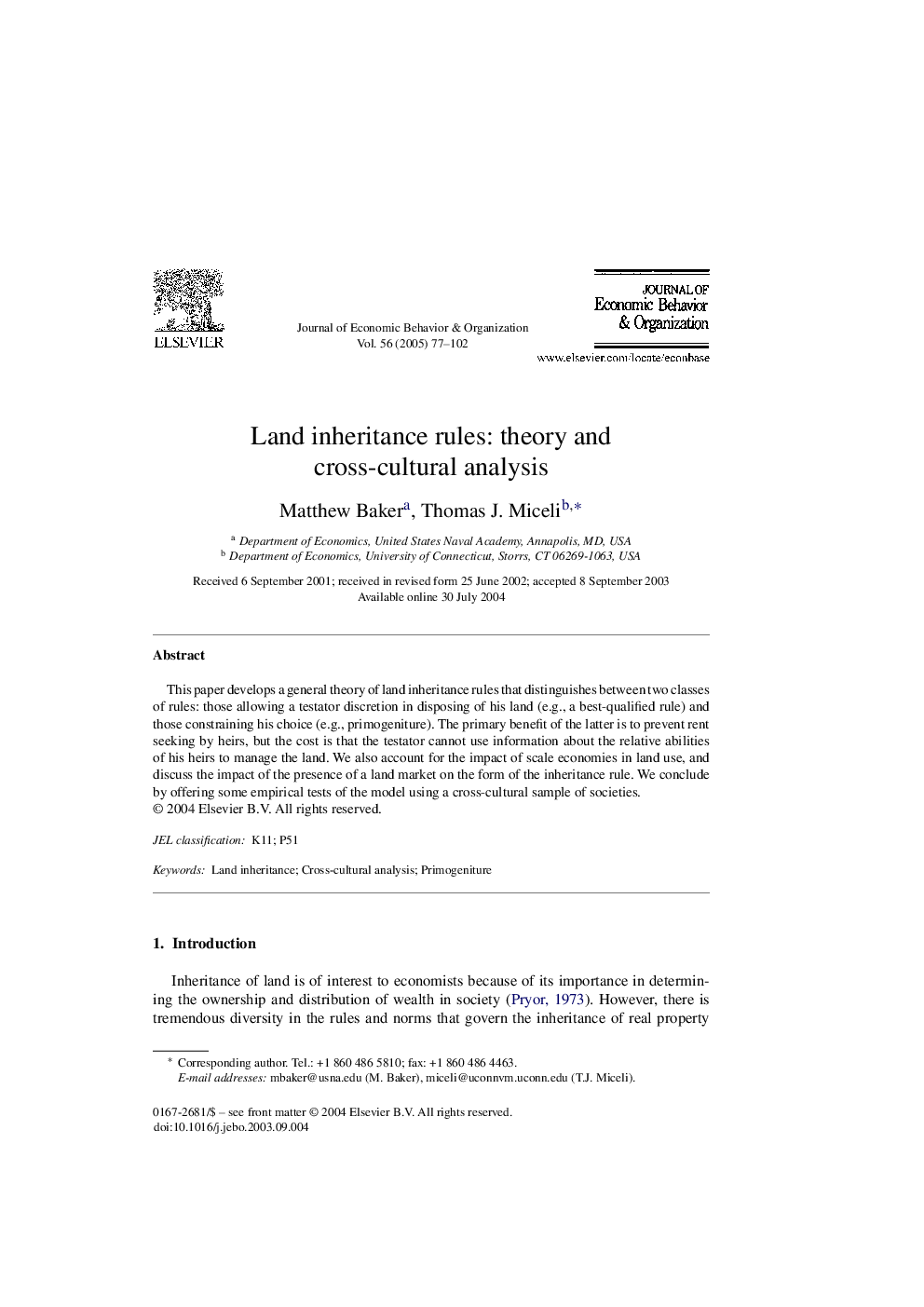| Article ID | Journal | Published Year | Pages | File Type |
|---|---|---|---|---|
| 10437943 | Journal of Economic Behavior & Organization | 2005 | 26 Pages |
Abstract
This paper develops a general theory of land inheritance rules that distinguishes between two classes of rules: those allowing a testator discretion in disposing of his land (e.g., a best-qualified rule) and those constraining his choice (e.g., primogeniture). The primary benefit of the latter is to prevent rent seeking by heirs, but the cost is that the testator cannot use information about the relative abilities of his heirs to manage the land. We also account for the impact of scale economies in land use, and discuss the impact of the presence of a land market on the form of the inheritance rule. We conclude by offering some empirical tests of the model using a cross-cultural sample of societies.
Keywords
Related Topics
Social Sciences and Humanities
Economics, Econometrics and Finance
Economics and Econometrics
Authors
Matthew Baker, Thomas J. Miceli,
